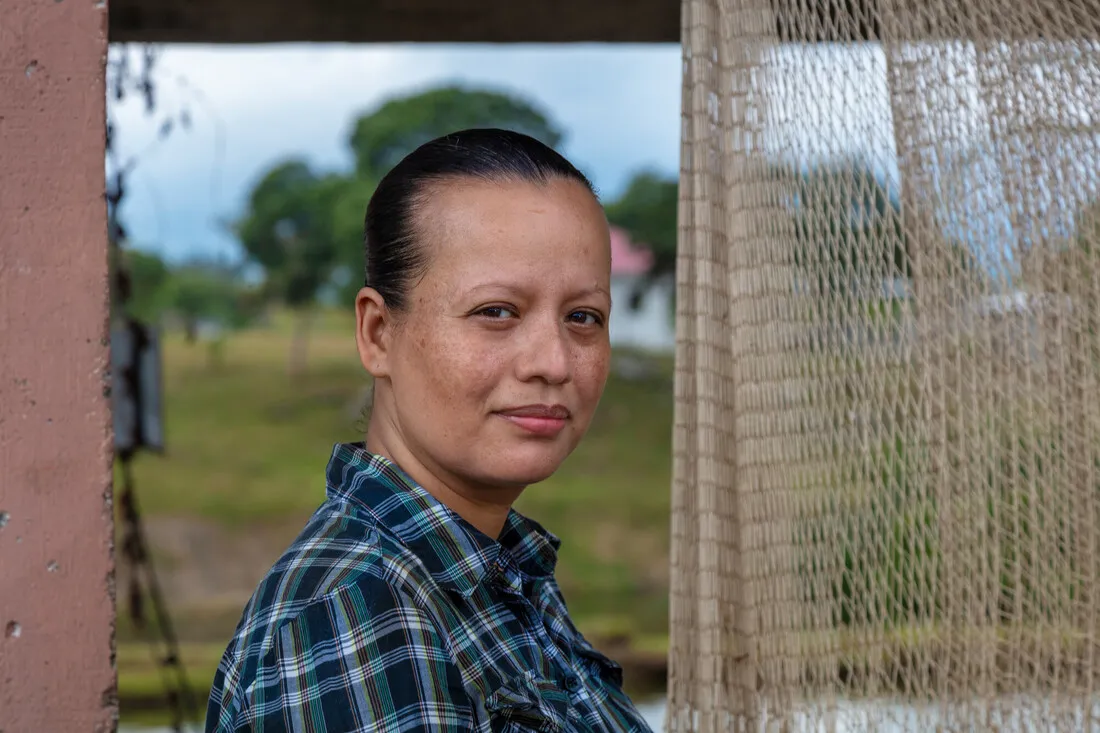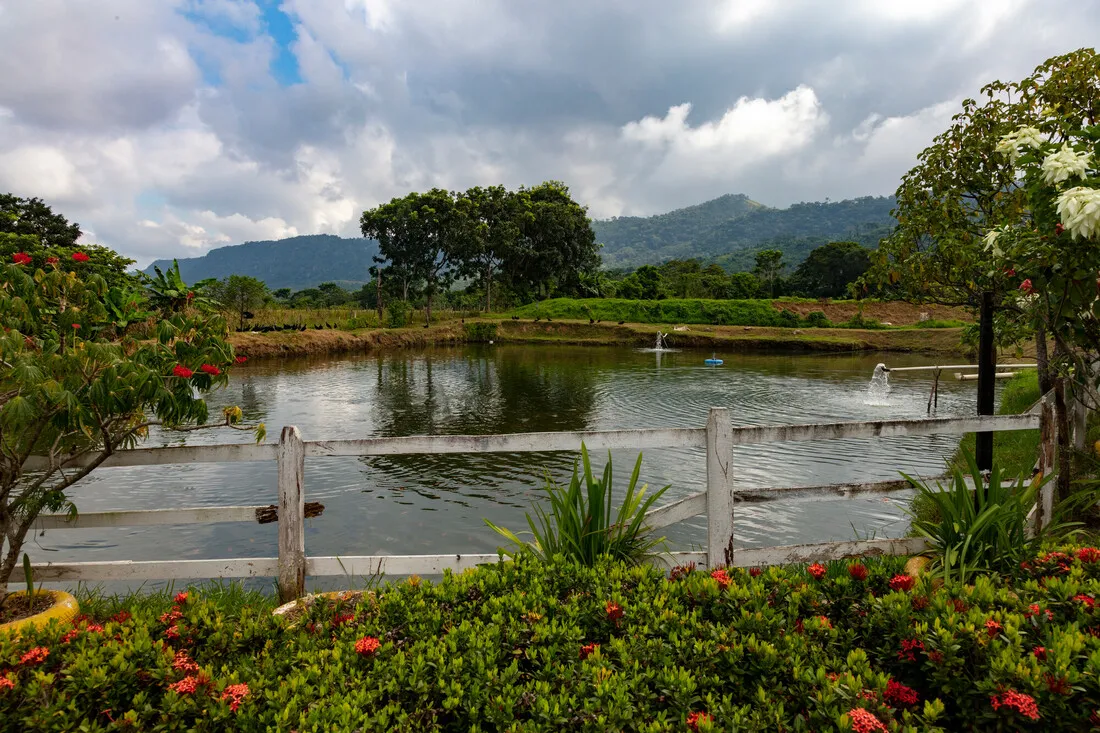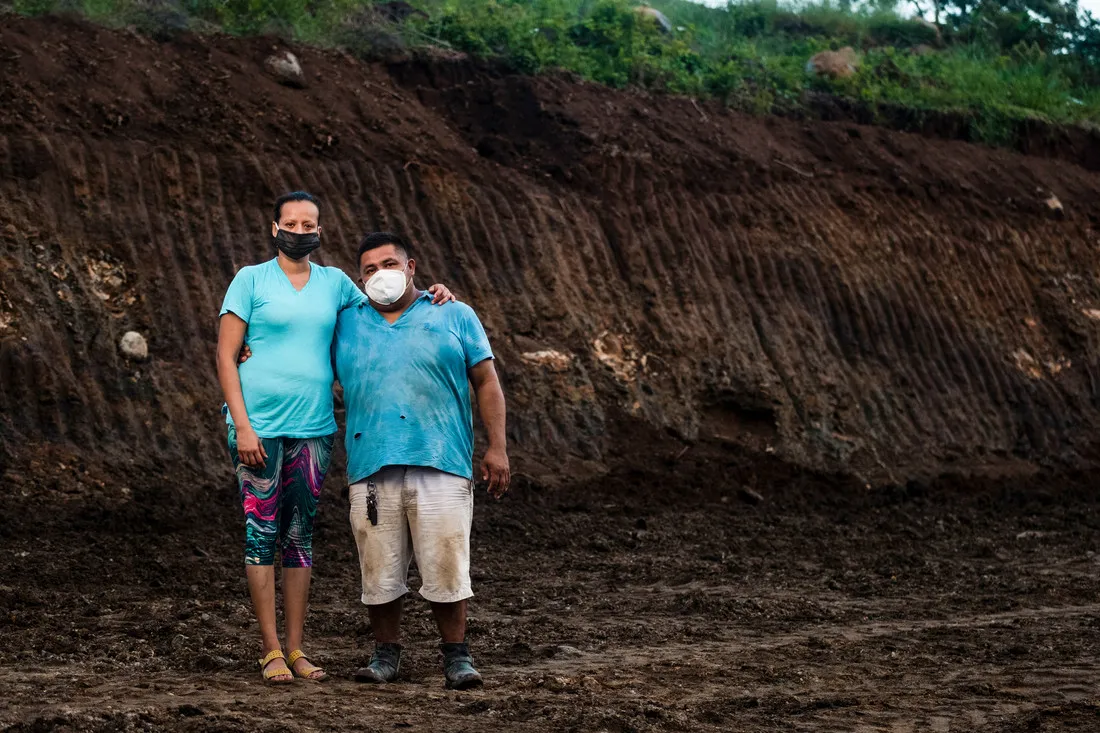Strength in numbers
Despite recent adversity, co-op members are now experiencing brighter days. For these independent producers, the simple act of banding together has brought easier access to markets, lower negotiated input prices, legal representation, regulatory assistance, and economies of scale. This operation’s sophistication attests to the latter point. On one site, the association manages breeding, hormone treatment (to ensure male fish since they grow bigger), and several large growth ponds. They also recently built a warehouse nearby to store feed for the fish.
The ability to sell as a group, rather than as individuals with far less market power, has helped provide stable and independent incomes to producers.
“We feed the fish,” Magdalena says. “We take care of them at night. It’s a 24-hour-a-day, 7 -day-a-week job. We do it, and we are demonstrating that women can do it; we are capable.”
Not much about the environment can be called “easy.” Across Central America, prices for feed are on the rise, and fuel prices have risen as much as 40 percent, driven by conflict in Ukraine. This has resulted in lower production volume for many agricultural organizations, and reduced income in households of small producers. According to the Pan American Health Organization, the prevalence of hunger in the region is the highest it has been in the last 15 years.
Meanwhile, not much about the environment for women can be called “easy” either. Magdalena calls the culture “macho,” but says that her family dynamic has changed because of the equality training sessions both she and her husband have attended.
“There are benefits, because in my home there have been positive changes. I know that there is a lot of work to be done, but I know that, little by little, it is moving forward.”



